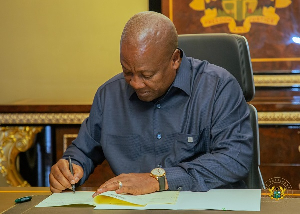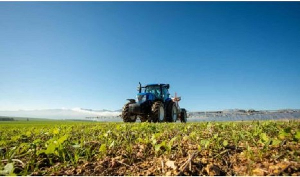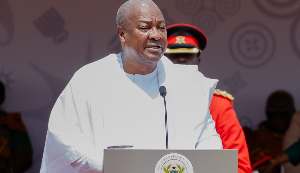Accra, June 29, GNA - Mr Abraham Kofi Asante, a leading member of the Democratic Freedom Party (DFP), on Thursday described the Party as a 21st century political third force.
"The Party will be a force in the country's political landscape capable of upstaging the rigidly divisive power blocs of the ruling New Patriotic Party (NPP) and the main opposition National Democratic Congress (NDC)," said Mr Asante, a Former NDC Member of Parliament (MP) for Amenfi West.
"The DFP would represent Ghana's 21st Century Third Force for those who want a fresh perspective and a winning alternative that will be positive about the future," Mr Asante, Spokesman for the Party, said at a press conference in Accra.
The press conference was attended by Mr Mike Eghan, Former Second National Vice Chairman of the Convention People's Party (CPP); Mr Bede Ziedeng, Former Acting General Secretary of the NDC; Mr John Amekah, Former General Secretary of the Great Consolidated Popular Party (GCPP) and other political activists from the NDC.
Mr Asante said the Party was aware of the anxiety and expectations of Ghanaians to see the launch of the Party adding that they had completed all the formalities required by the Electoral laws to register the new party.
He said the Party was currently governed by "Promoters Council" and would elect its national executives after the formal launch. Mr Asante said the Party had established a nationwide network of regional and district offices to facilitate its organizational mobilization and build-up.
He said the Party would be formally launched after it had been registered and certified by the Electoral Commission. The Electoral Laws say the political party has to be national in character, and membership must not be based on ethnic, religious, regional or other sectional divisions.
Its internal organization must conform to democratic principles and its actions and purposes must not contravene or be inconsistent with its constitution or any other law.
An organization shall not operate as a political party unless it is registered as such under the Law, for the time being in force for the purpose.
The law mandates a prospective political party to furnish the EC with a copy of its constitution and the names and addresses of its national officers, who should be ordinarily registered as a voter in each district of Ghana at least one founding member of the party. It must establish 10 regional branches, and in addition be organized in not less than two-thirds of the districts in each region. The party's name emblem, colour, motto or any other symbol must have no ethnic, regional, religious or other sectional connotations or give the appearance that its activities are confined only to a part of Ghana.
General News of Thursday, 29 June 2006
Source: GNA
DFP, Ghana's 21st Century political third force - Spokesman
Entertainment











